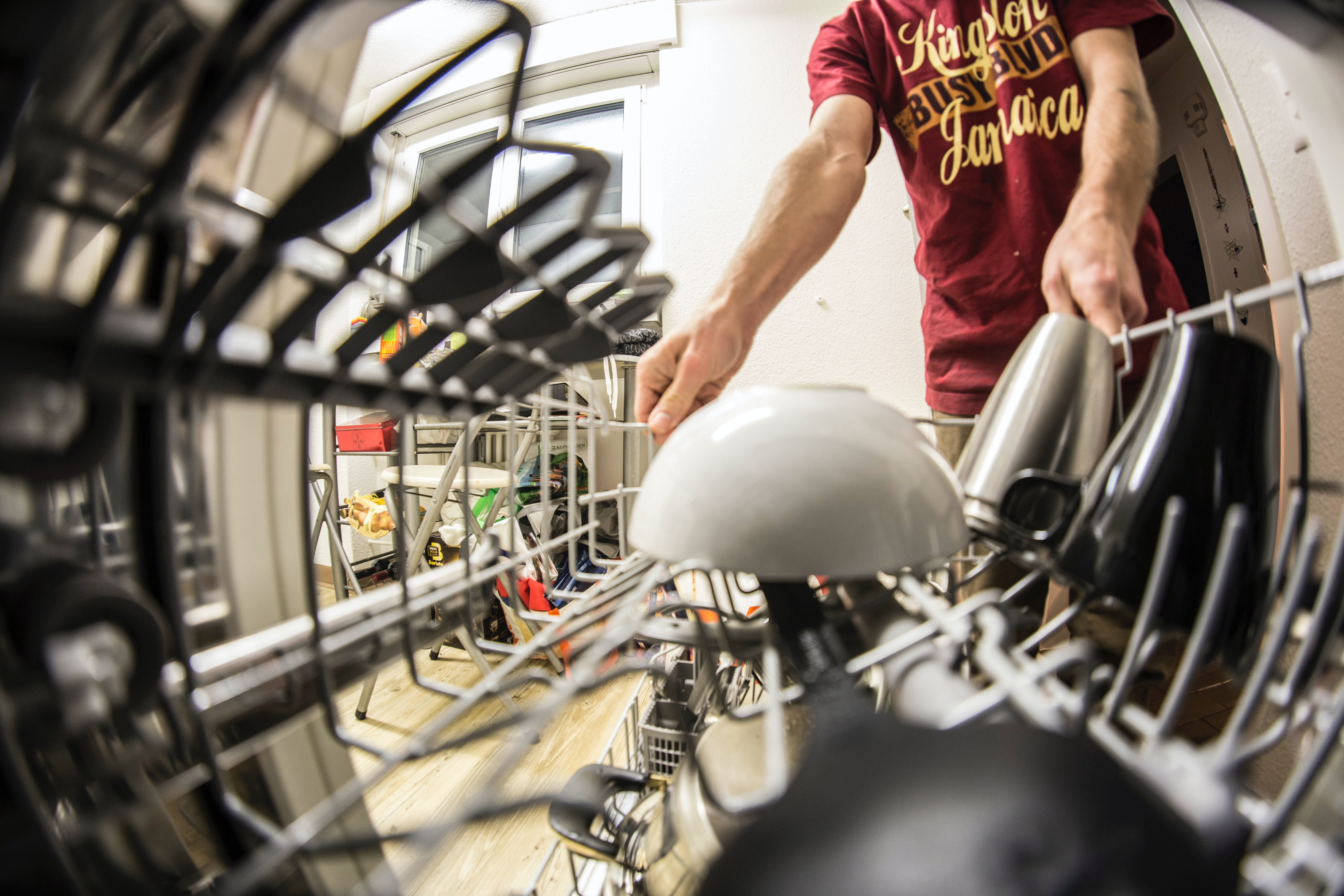 We tend to take things in our home for granted, casually accepting the miracles of chemistry, physics and biology that our appliances involve. Take your dishwasher, for instance: a device which cleans all manner of foods from a huge pile of dishes, quickly and efficiently. When you actually stop and think about it, the amount of work this involves is impressive, and the physics of this process are more complex than you might first think.
We tend to take things in our home for granted, casually accepting the miracles of chemistry, physics and biology that our appliances involve. Take your dishwasher, for instance: a device which cleans all manner of foods from a huge pile of dishes, quickly and efficiently. When you actually stop and think about it, the amount of work this involves is impressive, and the physics of this process are more complex than you might first think.
So how does a dishwasher use the power of water to wash dishes? Let’s take a look at the physics of water and how dishwashers use these forces to scrub your dishes.
Although the specifics differ, all dishwashers have the same fundamental design: a sink at the bottom that fills with water, a pump that moves this water and spray arms, sprayers and other devices that squirt this water onto the dishes.
When you look inside any dishwasher, one of the most obvious things you’ll see is a wash or spray arm, a rotating bar that sprays water onto the dishes, helping to dislodge the food. The dishwasher pumps water through this, but there is no motor to rotate the arm. Instead, the dishwasher uses the pressure of the water to spin it around.
The water jets on the spray arm are angled, so the water sprays out at an angle, usually about 45 degrees off the vertical. The force of this water pushes the arm, and it rotates. This shows the third of Newton’s laws of motion. As the man himself said in Latin in his 1687 bestseller, “Actioni contrariam semper et aequalem esse reactionem.” To translate: “For every action there is an equal and opposite reaction.”
So, as the water sprays out of the spray arm, it pushes the spray arm back again, sending it spinning. It’s the same principle that rockets use: hot gas gets pushed out of the bottom, forcing the rocket up, up and away.
To save water, all dishwashers recycle water. After it has been sprayed over the dishes, it collects in the sink at the bottom of the dishwasher, where it is then pumped it back up to wash the dishes again. A filter catches most of the large waste, but the smaller waste particles remain suspended in the water. So, how does the dishwasher know when the dishes are clean?
Older dishwashers ran for a set amount of time, depending on the program you chose. You would set them to a shorter wash for lightly soiled dishes and longer for pots and pans. Most modern dishwashers have an automatic mode, where they can tell when the dishes are clean, thanks to a device called a turbidity sensor.
This neat device allows the dishwasher to see how clean the water is by measuring how much grunge is in the water as it is pumped out of the sink: if the water is dirty, grunge is still washing off the dishes. If the water is clean, all the dirt has been washed off the dishes, and the wash is done. It works by shining a light (usually an infrared, or IR, light) through the water onto a sensor that measures how much light reaches it. As the water passes through, the grunge dissolved in the water and larger particles reflect it away. So, if the water is clean, most of the light passes through. If the water is dirty, less light passes through and is detected by the sensor.
Call Absolute Appliance Repair NOW if you have any problems with your dishwasher!
Phone lines
(415) 831-1259 San Francisco
(415) 388-0690 Marin County
(650) 525-0512 South SF / Daly City / Pacifica




